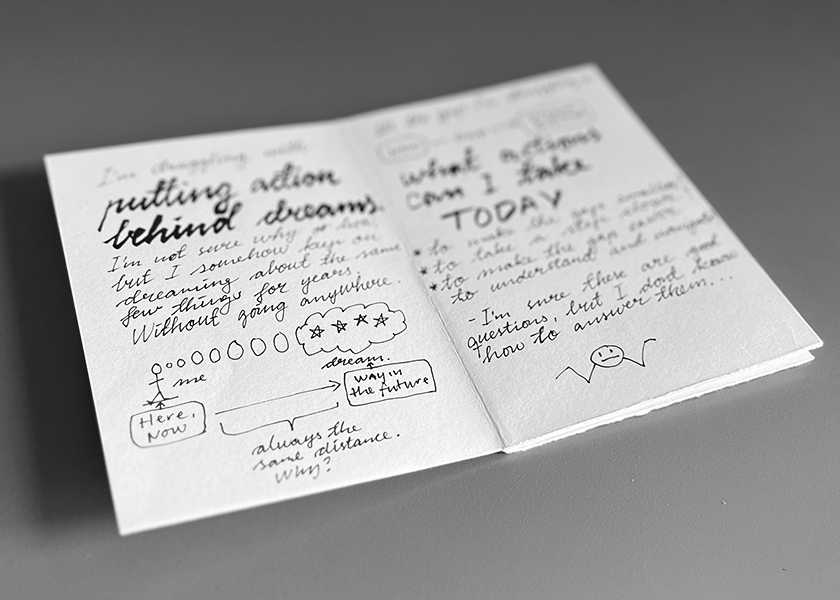From one moment to the next, my writing went from an orderly narrative to a 1:1 mirror of what was on my more or less chaotic mind in that exact moment.
If you are an overthinker like myself, then you probably know that journaling is a great way to… overthink even more.
Don’t get me wrong—I’m a big fan of journaling.
Journaling, at its best, is a way to let go of intrusive and spiraling thoughts, to kill overthinking in the cradle, and to heal over time. It becomes a mirror to reflect and understand your emotions and thoughts. It becomes a record of your growth through hardships, your dilemmas and decisions, and a timeline of your life.
However, journaling can easily be just another channel for us to overthink:
“Am I journaling right?”
“Does that sentence even make sense?”
“What do I actually feel about this?”
“Would my reader think less of me if…?”
“Is my handwriting getting sloppier?”
I have been journaling on and off for several periods of my life, always with a clear intention of writing only for me, with no other purpose than to help me reflect, understand, and vent.
Journaling was very important to me as I dug my way out of a depression. It helped me offload. It helped me look at my thought patterns in a more neutral, outside light. And to look back at the progress I had made.
Still, even though I was writing from that vulnerable place, with that clear intention of it being for my eyes only, I still managed to overthink it. I kept it humanly readable, rephrased sentences in my mind before I wrote them, and made sure to “get it right.”
Then suddenly, during a long stint of fairly consistent journaling, it just gelled for me: I don’t have to write full sentences. I don’t have to write anything that makes sense to anyone but me at that moment. I don’t have to write in an orderly fashion. I don’t have to think about what I’m writing in my journal. I don’t have to think about it. I don’t have to do anything. In fact, I should not think. I only have to write what’s on my mind, as it is on my mind.
The fact that you can do anything in your journal is, fortunately, very obvious for a lot of people. But for us overthinkers, it is way too easy to get lost and abide by arbitrary rules that only exist in our minds. Rules that we haven’t deliberately set for ourselves but are set by unconscious expectations and amplified by overthinking.
From one moment to the next, my writing went from an orderly narrative to a 1:1 mirror of what was on my more or less chaotic mind in that exact moment.
Warts and all. Thoughts racing by, taking detours, coming back, remembering something, there’s an emotion, what’s that sound, anyway, where was I? No doubt absolutely useless to an outside reader, but much more useful to me.
How did that shift happen? How come I could just switch from one mode to the other, in an instant?
I had gradually gotten closer and closer to a state where I just did it. I just wrote in my journal, without thinking about whether I should or not. I had established a rooted creative practice that gave me something back. I felt a sense of release, relief, and calm after having written a page or two. I had reached a point where writing in my journal had become an automatic action that didn’t “require me to overthink it.”
And I had been doing it long enough for my Judge—who knows nothing about creative acts—to become bored and fall asleep.
